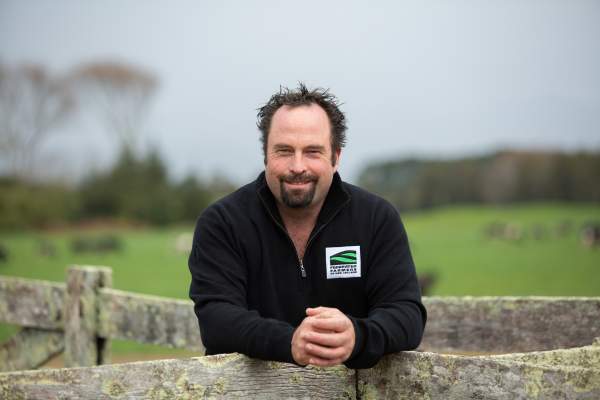The agricultural sector has faced a raft of challenges in the past two years, but a new report shows farm employers across the dairy, sheep and beef, and arable sectors have continued to invest strongly in one of their greatest assets – their staff.
The 2024 Federated Farmers-Rabobank Farming Salaries Report, released today, shows that since the last report in 2022, the average salary for a farm worker has increased by $7,480 to $71,411 and the weighted average annual salary across the 13 surveyed on-farm position categories has grown by 13 per cent.
“For some more senior roles, the increases have been significantly higher,” Federated Farmers national board member and employment spokesperson Richard McIntyre said.
“For example, the average salary for a dairy herd manager is up 19 per cent to $74,185. A sheep/beef farm manager is earning an average 22 per cent more than two years ago ($88,381) and the average income for an arable farm manager is up 28 per cent to $101,264.”

Rabobank General Manager Country Banking, Bruce Weir.
Mr McIntyre said the increases are impressive, especially in light of all the headwinds farmers have contended with over the past two years which have included Covid, severe weather events, production-suffocating red tape, inflation and roller-coaster commodity prices.
“And these upwards salary movements underline that careers in agriculture are not only satisfying, but also pay-competitive,” he said.
This 2024 report is the 14th Farming Salaries report that Federated Farmers and Rabobank have produced. The report collates the results from a remuneration survey conducted by independent firm Research First in early 2024, and the findings cover data collected from 529 farm employers relating to nearly 1800 employees.
The report shows that between 2022 and 2024, weighted average salaries rose by 11 per cent for dairy sector roles, by 17 per cent for sheep and beef roles, and by 14 per cent for arable roles.
Mr McIntyre said the report also highlights strong growth in Total Package Values (TPV) for farm employees.
"The salary figures do not include the range of other benefits provided to farm employees, which can include things like vehicle usage, meat, firewood, phone and power allowances,” he said.
“For many farm employees those extras can add up to several thousands of dollars a year. For example, the average Total Package Value for someone working in the sheep and beef sector rose to $76,296, nearly $3,700 more than the salary.”
The report shows the average weekly hours worked on farms is below the International Labour Organisation’s recommended maximum standard weekly total of 48 hours. The average number of hours worked by a permanent dairy staff member was 46.3 hours. On a sheep and beef farm it was 44.4 hours and on an arable farm 46.3 hours.
Rabobank General Manager for Country Banking Bruce Weir said the low unemployment environment was one of the key factors which had driven on-farm salaries higher over the past 24 months.
“Many farm owners have found it incredibly difficult to source skilled labour over recent years, and this has played a key role in lifting wages as employers have had to pay more to attract and maintain good staff,” he said.
Mr Weir said another major driver of salary growth – particularly for the dairy sector which has a greater reliance on overseas workers – was the Accredited Employer Work Visa (AEWV).
“Introduced in mid-2022, the AEWV requires employers to pay at least the median wage to international workers as a condition of the Visa, and this has lifted pay for international workers higher,” he said.
“This in turn has led to increased pay for domestic workers as employers have increased salaries for this group to ensure pay-parity with their international counterparts.”
Mr Weir said while growth in on-farm salaries increased costs for farm owners, it was crucial to help attract young people into agricultural careers.
“Alongside our client councils, Rabobank is involved in a number of activities that focus on highlighting to secondary school students the array of career opportunities available across the agri sector,” he said.
“We know that remuneration is a key consideration for this group when they’re thinking about career pathways and, if we want to attract good young people into the sector, it’s vitally important that growth in salaries for on-farm roles keeps pace with, or exceeds, what is happening across the wider employment market.”

Richard McIntyre (Federated Farmers)
“Statistics NZ data tells us that Labour Cost Index wage growth across all New Zealand sectors in the 24 months to December 31 last year was around 11 per cent[1], so it’s good to
see salaries for most of the surveyed on-farm positions growing at this rate or quicker over the same period.”
A copy of the full Farming Salaries Report can be accessed here.
[1] Average hourly earnings up 6.9 percent annually | Stats NZ
Rabobank New Zealand is a part of the global Rabobank Group, the world’s leading specialist in food and agribusiness banking. Rabobank has more than 120 years’ experience providing customized banking and finance solutions to businesses involved in all aspects of food and agribusiness. Rabobank is structured as a cooperative and operates in 38 countries, servicing the needs of about 8.6 million clients worldwide through a network of close to 1000 offices and branches. Rabobank New Zealand is one of the country's leading agricultural lenders and a significant provider of business and corporate banking and financial services to the New Zealand food and agribusiness sector. The bank has 27 offices throughout New Zealand.
Media contacts:
David Johnston
Marketing & Media Relations Manager
Rabobank New Zealand
Phone: 04 819 2711 or 027 477 8153
Email: david.johnston@rabobank.com
Denise Shaw
Head of Media Relations
Rabobank Australia & New Zealand
Phone: +612 8115 2744 or +61 2 439 603 525
Email: denise.shaw@rabobank.com
